
🔵 At ICARS, we took a moment to come together as a team and wear blue in solidarity with the global community raising awareness of #AMR.
Meet our team 🔗 icars-global.org/about-icars/...
#GoBlueforAMR

🔵 At ICARS, we took a moment to come together as a team and wear blue in solidarity with the global community raising awareness of #AMR.
Meet our team 🔗 icars-global.org/about-icars/...
#GoBlueforAMR
By preventing infections in humans, animals, and ecosystems, vaccines cut antibiotic use and slow resistant bacteria.
Learn more: icars-global.org/what-we-do/v...
#GlobalHealth #ICARS #WAAW25

By preventing infections in humans, animals, and ecosystems, vaccines cut antibiotic use and slow resistant bacteria.
Learn more: icars-global.org/what-we-do/v...
#GlobalHealth #ICARS #WAAW25
📋The results will be used by the project team to draft a priority list of future intervention and implementation areas in the region.
🔗 bit.ly/4imbbQq

📋The results will be used by the project team to draft a priority list of future intervention and implementation areas in the region.
🔗 bit.ly/4imbbQq
Learn more about our work- icars-global.org/what-we-do/i...
#AMR #InfectionPrevention #OneHealth #ICARS #GlobalHealth




Learn more about our work- icars-global.org/what-we-do/i...
#AMR #InfectionPrevention #OneHealth #ICARS #GlobalHealth

Find out more about stewardship in the explainer below, or by visiting our website 🔗 icars-global.org/what-we-do/d...
#WAAW25




Find out more about stewardship in the explainer below, or by visiting our website 🔗 icars-global.org/what-we-do/d...
#WAAW25

📍 Location: Copenhagen, Denmark
💼 Position: Full-time, Administrative Officer
📅 Application deadline: 02/12/2025
Learn more about the role and apply ➡️ bit.ly/3JWtYAU
#Hiring #FinanceJobs #FinanceAssistant #WorkInDenmark

📍 Location: Copenhagen, Denmark
💼 Position: Full-time, Administrative Officer
📅 Application deadline: 02/12/2025
Learn more about the role and apply ➡️ bit.ly/3JWtYAU
#Hiring #FinanceJobs #FinanceAssistant #WorkInDenmark
Today’s #OneHealthDay #MondayRead outlines a One Health stewardship framework.
🔗Read more ➡️ bit.ly/3LcFLQ6 #AMR
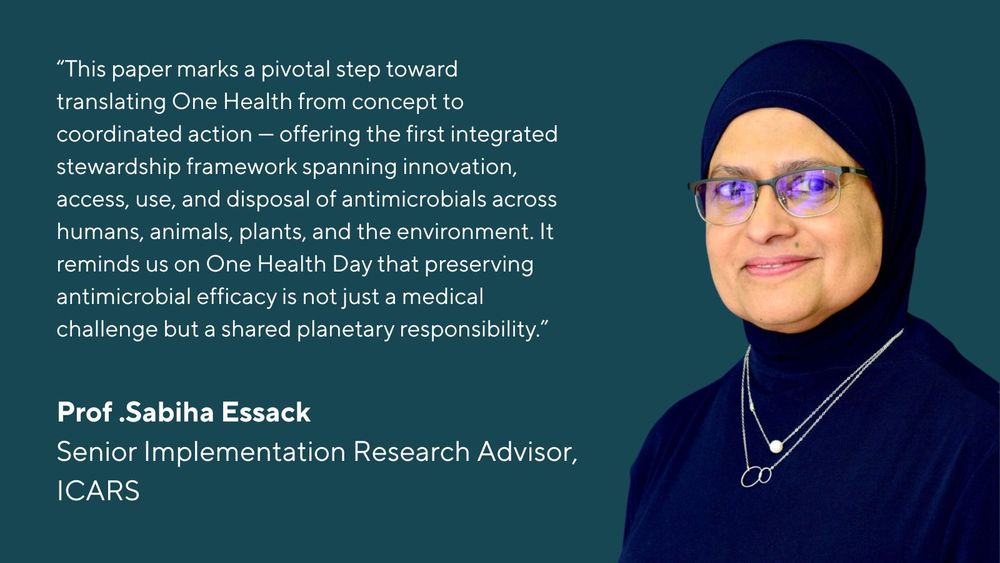
Today’s #OneHealthDay #MondayRead outlines a One Health stewardship framework.
🔗Read more ➡️ bit.ly/3LcFLQ6 #AMR
Read more: bit.ly/4hF1jko #AMR #Innovation



Read more: bit.ly/4hF1jko #AMR #Innovation
🌍The findings underscore the need for context-specific, collaborative & capacity-building approaches.
🔗 bit.ly/4oGYh1j

🌍The findings underscore the need for context-specific, collaborative & capacity-building approaches.
🔗 bit.ly/4oGYh1j
Read more 🔗➡️bit.ly/47kr5FF

Read more 🔗➡️bit.ly/47kr5FF



GLASS report, a crucial contribution to understanding and addressing the global threat of antimicrobial resistance (#AMR).
🔗 Read more: bit.ly/4qhPJiT
#AMR #GlobalHealth #Surveillance #OneHealth #AntimicrobialResistance #GLASS2025


GLASS report, a crucial contribution to understanding and addressing the global threat of antimicrobial resistance (#AMR).
🔗 Read more: bit.ly/4qhPJiT
#AMR #GlobalHealth #Surveillance #OneHealth #AntimicrobialResistance #GLASS2025
🔗 Read more ➡️ bit.ly/3W8s9aQ

🔗 Read more ➡️ bit.ly/3W8s9aQ
Read the full article➡️ bit.ly/4mWuNuY

Read the full article➡️ bit.ly/4mWuNuY
📍 Location: Copenhagen, Denmark
💼 Position: Full-time, Fuldmægtig
📅 Deadline: 26/10/25
🔗 Read the full job description and apply here ➡️ bit.ly/4okAsfJ
#Hiring #CopenhagenJobs #GlobalHealth #DataProtection
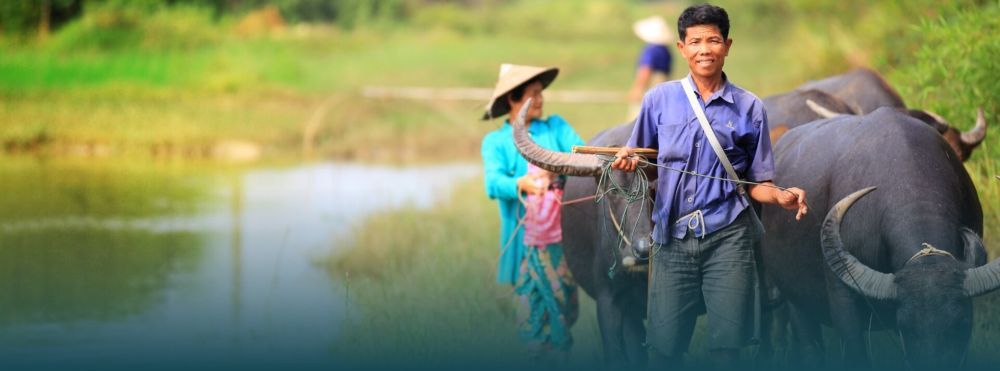
📍 Location: Copenhagen, Denmark
💼 Position: Full-time, Fuldmægtig
📅 Deadline: 26/10/25
🔗 Read the full job description and apply here ➡️ bit.ly/4okAsfJ
#Hiring #CopenhagenJobs #GlobalHealth #DataProtection
Packed with the latest updates on:
🌍 Global partnerships & engagements
💡 Innovative initiatives
🧪 Project implementation highlights
🌱 New climate-focused projects
📚 Useful resources
📣 Read and share ➡️ bit.ly/4oaQLLT
#AntimicrobialResistance #OneHealth #AMR
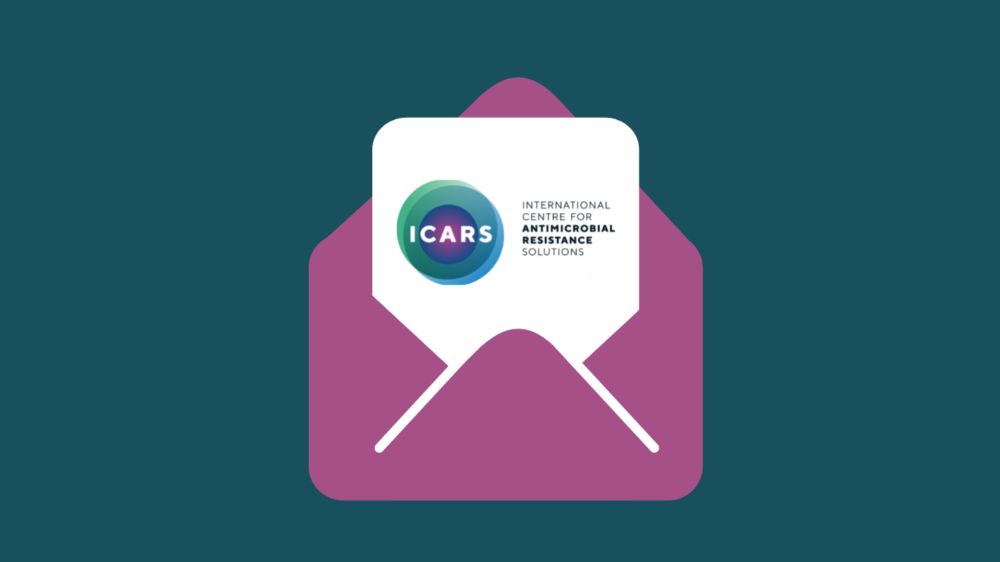
Packed with the latest updates on:
🌍 Global partnerships & engagements
💡 Innovative initiatives
🧪 Project implementation highlights
🌱 New climate-focused projects
📚 Useful resources
📣 Read and share ➡️ bit.ly/4oaQLLT
#AntimicrobialResistance #OneHealth #AMR
🔗Full article: bit.ly/3KXb8O8
#AMR #AnimalHealth
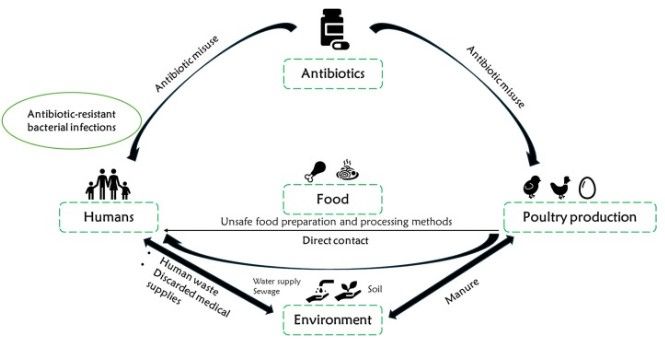
🔗Full article: bit.ly/3KXb8O8
#AMR #AnimalHealth
🏥The project will introduce hospital-based AMS programmes in six hospitals, generating evidence to support national scale-up. bit.ly/3WkNBcs

🏥The project will introduce hospital-based AMS programmes in six hospitals, generating evidence to support national scale-up. bit.ly/3WkNBcs
Read more ➡️ bit.ly/42gY9wN



Read more ➡️ bit.ly/42gY9wN
🔗Full article: bit.ly/46Dk6re
#AntimicrobialResistance #AMR #AnimalHealth

🔗Full article: bit.ly/46Dk6re
#AntimicrobialResistance #AMR #AnimalHealth
🔗Full article: bit.ly/4mw4Gee
#ESCMID #AntimicrobialResistance #GlobalHealth #AntimicrobialStewardship

🔗Full article: bit.ly/4mw4Gee
#ESCMID #AntimicrobialResistance #GlobalHealth #AntimicrobialStewardship
Learn more ➡️ 🔗 bit.ly/46sZn9B
#AMR #AntimicrobialStewardship #GlobalHealth #Zambia
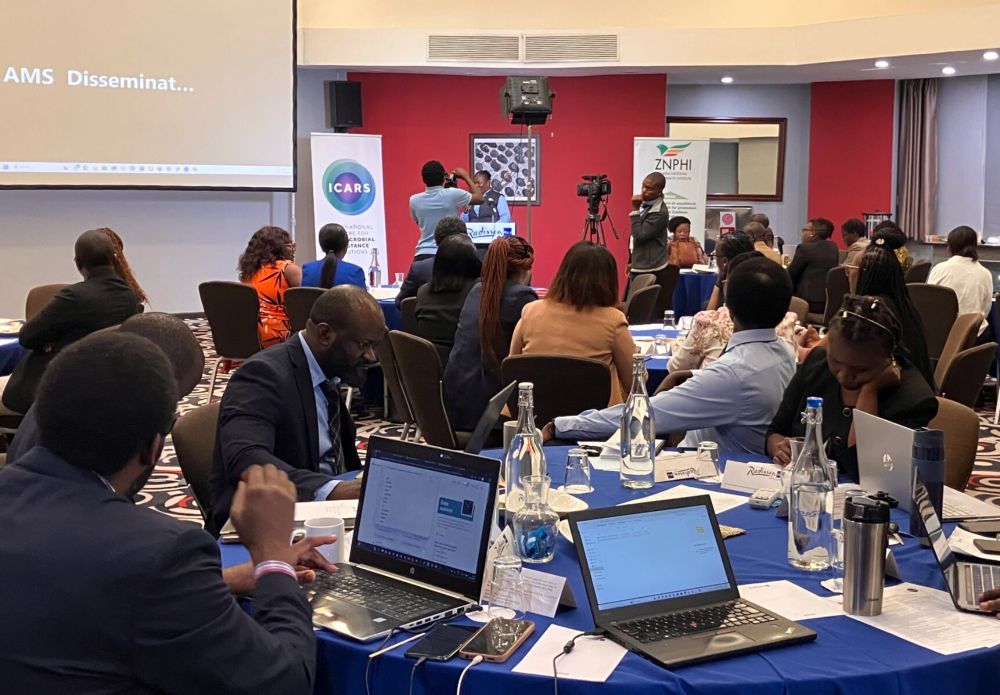
Learn more ➡️ 🔗 bit.ly/46sZn9B
#AMR #AntimicrobialStewardship #GlobalHealth #Zambia
Read more about the experience Dr. Shetty brings to ICARS, as well as reflections from the Board Chair, Dr Henrik Wegener ➡️🔗 bit.ly/3VkjrWy

Read more about the experience Dr. Shetty brings to ICARS, as well as reflections from the Board Chair, Dr Henrik Wegener ➡️🔗 bit.ly/3VkjrWy

